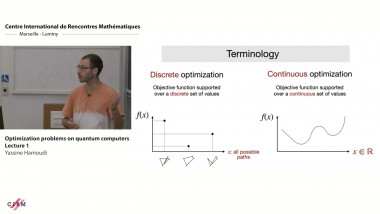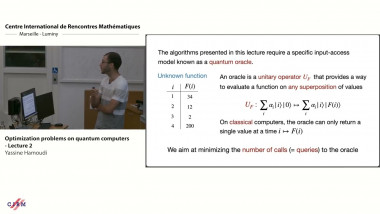
Drawing curves on surfaces or: how I learned to stop worrying and love train-tracks
By Saul Schleimer

Optimization problem on quantum computers - lecture 1
By Yassine Hamoudi

Optimization problem on quantum computers - lecture 2
By Yassine Hamoudi

Generative AI and Diffusion Models: a Statistical Physics Analysis (3/3)
By Giulio Biroli

Exploring the High-dimensional Random Landscapes of Data Science (3/3)
By Gérard Ben Arous











